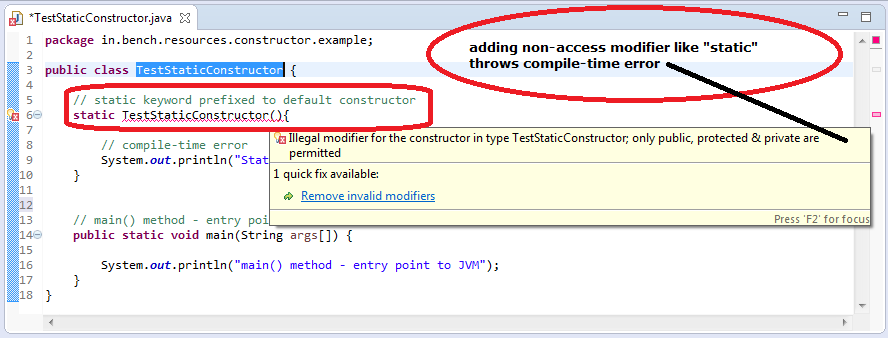

IsNamePresent: Returns true if the parameter has a name according to the. See the section Implicit and Synthetic Parameters for more information.


IsImplicit: Returns true if this parameter is implicitly declared in source code. Alternatively, you can invoke the method isImplicit The parameter is implicitly declared in source code. Alternatively, you can invoke the method isSynthetic. This value is the sum of the following values, if applicable to the formal parameter: Value (in decimal) GetModifiers : Returns an integer that represents various characteristics that the formal parameter possesses. The example MethodParameterSpy would print the following for the method ExampleMethods.simpleMethod: public boolean ExampleMethods.simpleMethod(,int) Otherwise, this method synthesizes a name of the form arg N, where N is the index of the parameter in the descriptor of the method that declares the parameter.įor example, suppose you compiled the class ExampleMethods without specifying the -parameters compiler option. If the parameter's name is present, then this method returns the name provided by the. GetName: Returns the name of the parameter. The MethodParameterSpy example uses the following methods from theĬlass object that identifies the declared type for the parameter.

Public void ExampleMethods.genericMethod(T,) Public int ExampleMethods.varArgsMethod(.) Public boolean ExampleMethods.simpleMethod(,int) This command prints the following: Number of constructors: 1 Note: Remember to compile the example ExampleMethods with the -parameters compiler option: java MethodParameterSpy ExampleMethods The following command prints the formal parameter names of the constructors and methods of the classĮxampleMethods. The example also prints other information about each parameter.
#JAVA REFLECTION GET DEFAULT CONSTRUCTOR HOW TO#
MethodParameterSpy example illustrates how to retrieve the names of the formal parameters of all constructors and methods of a given class. class file, and thus enable the Reflection API to retrieve formal parameter names, compile the source file with the -parameters option to the javac compiler. To store formal parameter names in a particular. In addition, some parameter names, such as secret or password, may expose information about security-sensitive methods. class files, and the Java Virtual Machine (JVM) would use more memory. In particular, these tools would have to handle larger. class files that contain parameter names. This is because many tools that produce and consume class files may not expect the larger static and dynamic footprint of. class files do not store formal parameter names by default. (The classesĮxecutable and therefore inherit the method Executable.getParameters.) However. in the constructor we get an exception.ĭef exception = shouldFail(GroovyRuntimeException) )įinal String name // AST transformation supports read-only properties.Īssert hubert.name = 'Hubert A.You can obtain the names of the formal parameters of any method or constructor with the method When we try to use named arguments (turns into a Map) create a Map argument constructor now. Also properties can be final and we can still use a constructor with Map argument.įirst we look at the default behaviour in Groovy when we create a POGO: // Simple POGO.Īssert mrhaki.name = 'Hubert Klein Ikkink'Īssert mrhaki.likes = We can for example let Groovy generate the constructor with Map argument and add our own constructor. Using the annotation we can have more options to customize the generated constructor. Since Groovy 2.5.0 we can use the AST transformation annotation to add a constructor with a Map argument. This only works if we don't add our own constructor and the properties are not final. We can use named arguments to create an instance of a POGO, because of the Map argument constructor. Groovy adds the constructor automatically in the generated class. Since the early days of Groovy we can create POGO (Plain Old Groovy Objects) classes that will have a constructor with a Map argument.


 0 kommentar(er)
0 kommentar(er)
